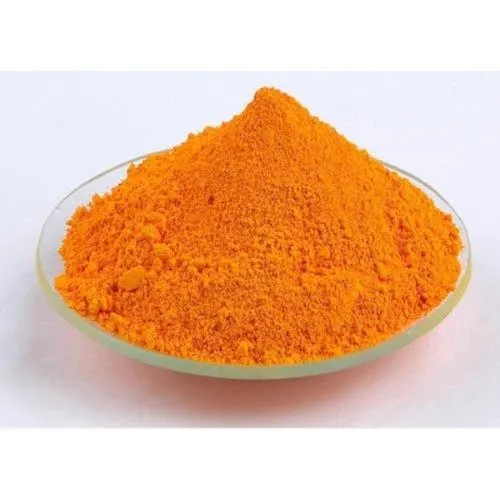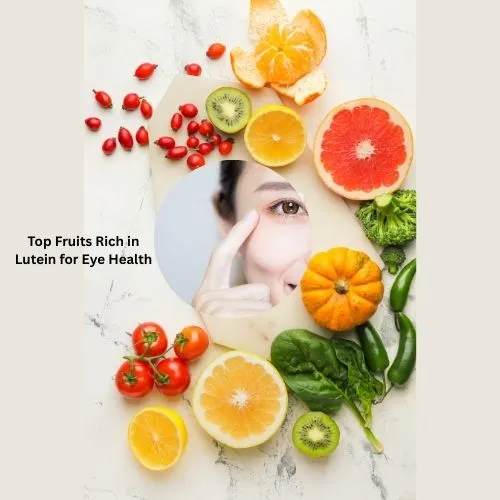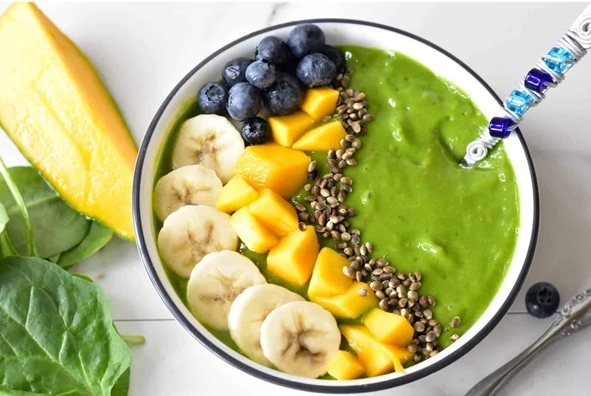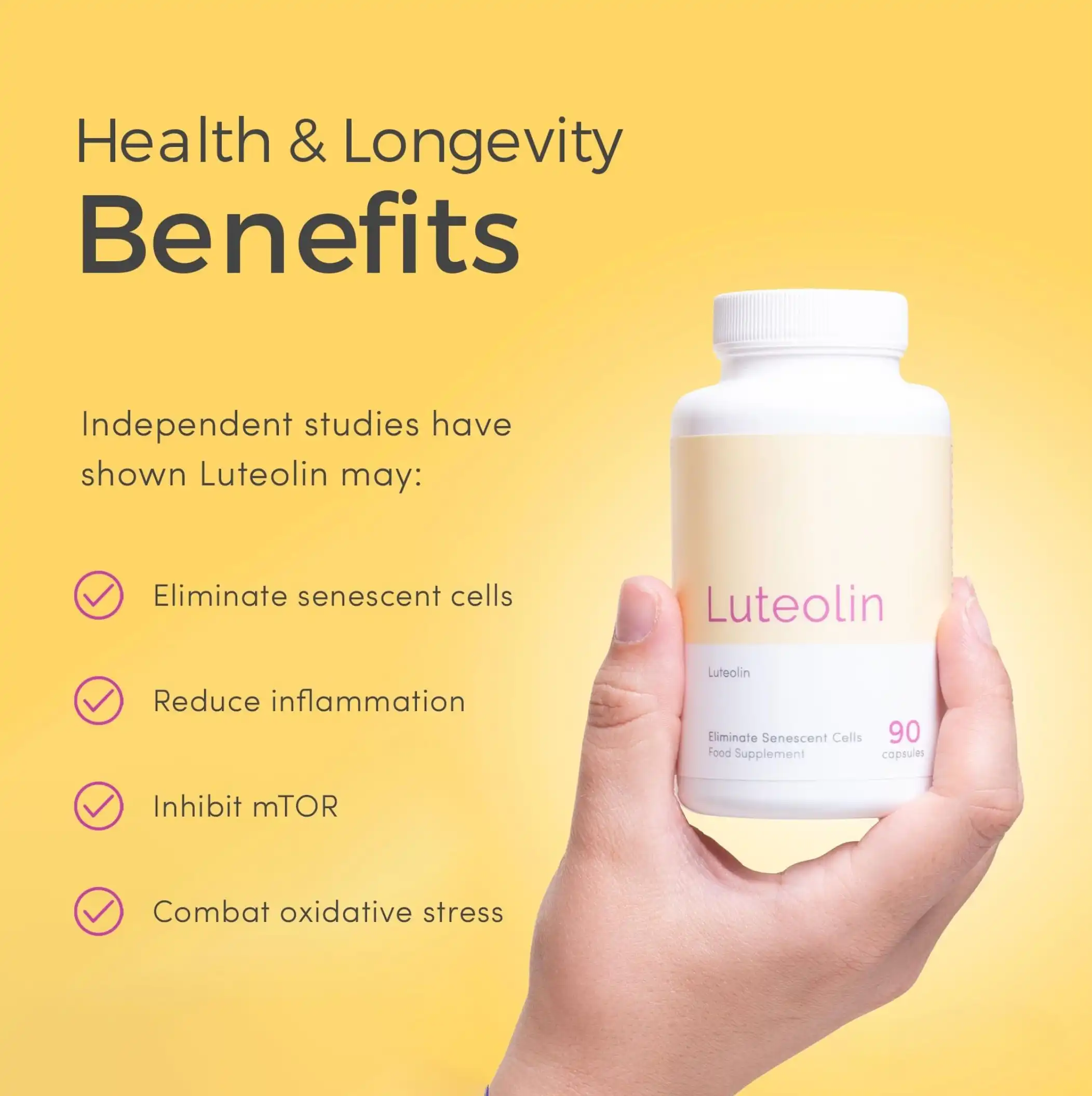What fruit is high in lutein?
Lutein, a powerful antioxidant and carotenoid, plays a crucial role in maintaining eye health and preventing age-related vision problems. While many associate lutein with leafy green vegetables, several fruits also contain significant amounts of this essential nutrient. In this comprehensive guide, we'll explore the top fruits rich in lutein, how to incorporate them into your diet, and the numerous benefits of consuming lutein-rich fruits.

Top Fruits Rich in Lutein for Eye Health
While fruits generally contain lower levels of lutein compared to leafy greens, they still contribute to your daily intake and offer additional health benefits. Let's explore some of the best fruit sources of lutein:
Kiwi: A Tropical Lutein Powerhouse
Kiwi fruit is an excellent source of lutein, packing a punch with its vibrant green flesh. One medium kiwi contains approximately 0.2 mg of lutein, making it a delicious and nutritious addition to your diet. The fuzzy exterior of kiwi hides a treasure trove of nutrients, including vitamin C, fiber, and potassium, complementing its lutein content for overall health benefits.
Orange: Citrus Lutein Boost
Oranges, known for their high vitamin C content, also provide a decent amount of lutein. A medium-sized orange contains about 0.2 mg of lutein. The combination of the product and vitamin C in oranges creates a powerful antioxidant duo, potentially enhancing the protective effects on your eyes and overall health. Incorporating oranges into your diet can be as simple as enjoying a fresh fruit or adding orange segments to your salads.
Grapes: Small but Mighty Lutein Source
Both red and green grapes contain lutein, with red grapes generally having a slightly higher content. A cup of grapes provides approximately 0.1-0.3 mg of lutein, depending on the variety. Grapes also offer resveratrol, another potent antioxidant that works synergistically with it to promote eye health and overall well-being. Snacking on grapes or adding them to your breakfast cereal can be an easy way to boost your lutein intake.

How to Include Lutein-Rich Fruits in Your Diet?
Incorporating lutein-rich fruits into your daily diet doesn't have to be a challenge. Here are some creative and delicious ways to boost your lutein intake:
Fruit Salads with a Lutein Twist
Create colorful fruit salads that combine various lutein-rich fruits. Mix diced kiwi, orange segments, and halved grapes for a refreshing and nutritious treat. Add a sprinkle of chia seeds or chopped nuts for extra texture and nutrients. This versatile dish can serve as a light breakfast, a mid-day snack, or a healthy dessert option. Experiment with different fruit combinations to keep your lutein-rich salads exciting and varied.
Smoothies Packed with Lutein Goodness
Blend lutein-rich fruits into delicious smoothies for a quick and easy way to increase your intake. Combine kiwi, orange, and grapes with spinach or kale for an extra lutein boost. Add a banana for creaminess and a handful of berries for additional antioxidants. This nutrient-dense smoothie can serve as a meal replacement or a post-workout refresher, providing your body with essential vitamins, minerals, and it to support eye health and overall wellness.
Fruit-Infused Water for Hydration and Health
Infuse your water with lutein-rich fruits to make hydration more enjoyable and nutritious. Slice oranges, kiwis, and grapes and add them to a pitcher of water. Let it sit in the refrigerator for a few hours or overnight to allow the flavors and nutrients to infuse into the water. This refreshing drink not only helps you stay hydrated but also provides a subtle dose of lutein and other beneficial compounds from the fruits. It's an excellent alternative to sugary beverages and can encourage increased water consumption throughout the day.

Benefits of Eating Fruits High in Lutein
Consuming fruits rich in lutein offers numerous health benefits, particularly for eye health and beyond. Let's explore the advantages of incorporating these nutritious fruits into your diet:
Enhanced Eye Protection and Vision Support
Lutein is known as the "eye vitamin" for good reason. It accumulates in the macula, the central part of the retina responsible for sharp, detailed vision. By consuming lutein-rich fruits, you provide your eyes with this essential nutrient that acts as a natural sunscreen, filtering harmful blue light and protecting against oxidative damage. Regular intake of the product may help reduce the risk of age-related macular degeneration (AMD) and cataracts, two common eye conditions that can lead to vision loss in older adults. Additionally, it may improve visual acuity and contrast sensitivity, enhancing your overall visual performance in various lighting conditions.
Antioxidant Power for Overall Health
Lutein is a potent antioxidant that extends its benefits beyond eye health. By neutralizing harmful free radicals in the body, lutein helps protect cells from oxidative stress and inflammation. This antioxidant activity may contribute to reducing the risk of chronic diseases such as cardiovascular disease and certain types of cancer. The fruits high in lutein, such as kiwi, oranges, and grapes, also contain other antioxidants like vitamin C and flavonoids, creating a synergistic effect that amplifies their protective properties. Regular consumption of these fruits can support your body's natural defense mechanisms and promote overall health and longevity.
Cognitive Function and Brain Health
Emerging research suggests that lutein may play a role in supporting cognitive function and brain health. The brain is particularly vulnerable to oxidative stress and inflammation, which can contribute to age-related cognitive decline and neurodegenerative diseases. Lutein's antioxidant and anti-inflammatory properties may help protect brain cells from damage and support healthy brain function. Some studies have found associations between higher lutein intake and improved memory, processing speed, and overall cognitive performance, particularly in older adults. By including lutein-rich fruits in your diet, you may be supporting not only your eye health but also your brain health as you age.

Conclusion
Incorporating lutein-rich fruits into your diet is a delicious and effective way to support eye health and overall well-being. Kiwi, oranges, and grapes are excellent sources of this powerful antioxidant, offering a range of benefits from enhanced vision protection to potential cognitive support. By creatively including these fruits in your meals and snacks, you can boost your lutein intake and enjoy their numerous health advantages. Remember, a balanced diet rich in a variety of fruits and vegetables is key to optimal health and longevity.
At Yangge Biotech Co., Ltd., we understand the importance of lutein in maintaining eye health and overall wellness. As a leading provider of natural plant extracts, including high-quality lutein powder derived from marigold flowers, we're committed to supporting your health goals. Our lutein extracts are perfect for incorporating into dietary supplements, functional foods, and beverages. To learn more about our lutein products and how they can enhance your formulations, please contact us at info@yanggebiotech.com.
FAQ
Q: Can we get some samples to test before purchasing?
A: Of course, we can provide free samples of 20 to 100 grams, but the shipping cost is at the customer's expense. The shipping cost can be deducted from the next order, or the samples can be sent through your courier account.
Q: Do your products have relevant certifications?
A: Yes, our products are certified for HALAL, ISO, HACCP, Kosher, and other certifications.
Q: What is the minimum order quantity (MOQ)?
A: Small batches of samples can be customized according to your requirements.
Q: Do you offer OEM and ODM services? Can the formula be customized based on our own?
A: Of course, we provide ODM and OEM services to many customers. Our product range includes softgels, capsules, tablets, sachets, granules, and private label services. Simply contact us and let us know your requirements. Our experienced R&D team can also develop new products with specific formulas.
Please contact us to design your own branded products.
Q: How do you handle quality complaints?
A: First, we have a comprehensive quality control SOP. We provide authoritative third-party inspection reports for almost all products before shipment to minimize the possibility of quality issues. Second, we have a comprehensive return and exchange procedure. If there is a genuine quality dispute, we will strictly follow the SOP.
Q: How do you ship? How long does delivery take?
A: For small orders, we typically use DHL, UPS, EMS, FedEx, or TNT. Delivery typically takes 3-7 days. We also offer air and sea freight services. We have a strong freight forwarding team and can provide you with a one-stop service, including DDP and DDU.
Q: What are your payment terms?
A: 100% prepayment, payable by T/T, Western Union, MoneyGram, or PayPal.
Q: What is the shelf life of your products?
A: 2 years with proper storage.
Q: Is the packaging environmentally friendly?
A: We attach great importance to environmental protection and are constantly improving our product packaging. Some products are packaged in recyclable paper. Packaging materials are carefully selected to ensure product safety during transportation and storage, and to minimize environmental impact. We are committed to achieving a balance between environmental friendliness and practicality in our product packaging, and to contributing to sustainable development.
References
1. Johnson, E. J. (2014). Role of lutein and zeaxanthin in visual and cognitive function throughout the lifespan. Nutrition Reviews, 72(9), 605-612.
2. Abdel-Aal, E. S. M., Akhtar, H., Zaheer, K., & Ali, R. (2013). Dietary sources of lutein and zeaxanthin carotenoids and their role in eye health. Nutrients, 5(4), 1169-1185.
3. Eisenhauer, B., Natoli, S., Liew, G., & Flood, V. M. (2017). Lutein and Zeaxanthin—Food Sources, Bioavailability and Dietary Variety in Age-Related Macular Degeneration Protection. Nutrients, 9(2), 120.
4. Stringham, J. M., Johnson, E. J., & Hammond, B. R. (2019). Lutein across the lifespan: from childhood cognitive performance to the aging eye and brain. Current Developments in Nutrition, 3(7), nzz066.
5. Mares, J. (2016). Lutein and Zeaxanthin Isomers in Eye Health and Disease. Annual Review of Nutrition, 36, 571-602.

Based on your location and order quantity, you will have the opportunity to receive a limited time free shipping promotion!

Who we are


